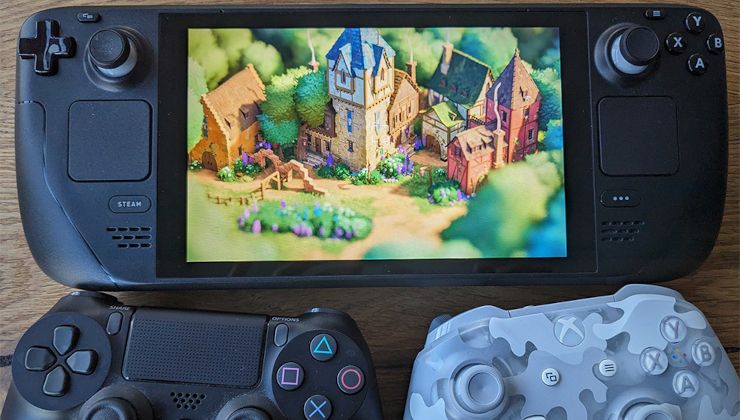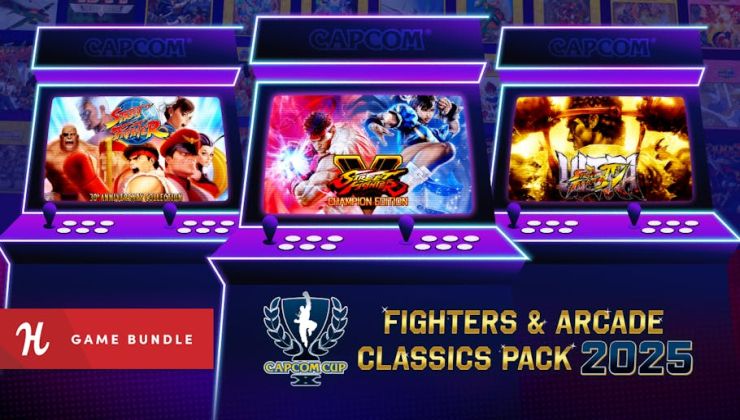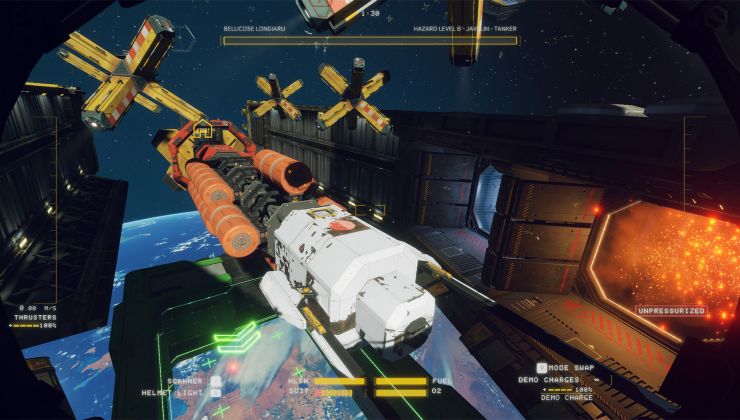Six years ago tomorrow (yes really!) Valve announced the Steam for Linux beta for a limited amount of interested gamers. After getting more responses than they expected (over 60,000) they kept the testing pool quite small.
Later that month, on November 21st Valve added an additional 5,000 testers to help find more issues. Rather quickly, Valve pushed the beta out for a much larger audience on December 19th in that same year with anyone being able to try it. I remember it extremely well, having a rather ordinary week and suddenly being thrown into the thick of it making sure I could test everything possible.
We didn't start off with many games, with very few developers joining Valve for the initial testing period. That pretty quickly changed and now the number is in the thousands. The number by itself obviously doesn't mean a lot, since there's a lot of rubbish available but we do have access to some pretty fantastic titles. Who would have honestly thought we would have access to everything we do now? From FTL to Mad Max, Bastion to Rocket League we have around 5,100 native Linux games now (and still growing daily) available on the Steam store.
Without the push from Valve, it's highly likely we wouldn't have a lot of the things we might take for granted now. Popular game engines support Linux, our graphics drivers have pushed forwards quite rapidly, the Vulkan API was introduced and released and so on.
The biggest surprise Valve has given us? Absolutely has to be their new version of Steam Play. Linux gamers had been asking for a long time to have the ability to run Windows games using Wine directly from the Steam client. We're also closing in an additional 3,000 games that work in some form (some don't have a lot of reports yet) using Steam Play/Proton according to ProtonDB as well. Pushing aside how some feel about using it themselves, most agree it's a good thing given how we've been lacking in ports of games from bigger studios and so hopefully a year from now more will try out Linux.
In a few days time on the 10th of November, it will also mark three years since Valve officially released the Steam Machines, Steam Link & Steam Controller as well. While the Steam Machine idea from never really took off, it at least laid the groundwork for Linux gaming as it is today. The Steam Controller though, I still consider it a thing of beauty. Sure, you need to look past the surface of the bulky cheap looking design and feel to it but it also helped to push Valve towards improving controller support on Steam too with many pads now having configuration options.
The next few years are going to be a very interesting time for both Linux and Steam gaming, with so many big players now doing their own stores and launchers. Valve have their work cut out for them more than ever, although hopefully with their return to making games we might be in for a few nice surprises. I've said it a few times recently, that Valve seem to be sat on some seriously good IP with Left 4 Dead, Portal, Half-Life and more so hopefully they will eventually do something with them.
Mini-Timeline:
- 16th July 2012 - Valve's first blog post about bringing Steam and the Source Engine to Linux
- 1st August 2012 - Valve do another blog post, this time about the performance of Linux gaming
- 26th September 2012 - Another blog post to announce their external beta is starting soon
- 6th November 2012 - Valve announces Steam for Linux limited beta
- 21st November 2012 - The beta expands to include another 5,000 people
- 19th December 2012 - The Steam for Linux beta is available to everyone
- 14th February 2013 - Steam for Linux officially released out of beta
- 23rd September 2013 - SteamOS announced, Valve's Linux-based living room operating system
- 10th November 2015 - Steam Machines, Steam Link & Steam Controller officially released
- 21st August 2018 - New version of Steam Play announced
Now if you will excuse me, I need to go scroll through my 1.4K+ list of Linux games and attempt to choose something to play…who am I kidding? Rocket League, obviously.
I'm also really happy with modern Linux package management. What with the gui front ends, it's changed my habits. Used to be, when I installed a new distro/new version, I would set aside a chunk of time to get all the software I probably needed installed and running and make sure it showed up on menus or I had an icon somewhere to find it with, so I wouldn't have to faff around when I actually needed it. Now I don't bother. If I need something, I'll look it up in the software manager and click "install".You want a cake? You know the drill!
Ah. The "good old days" of Linux - compiling your own stuff. Sure, you can still do it now, but most distributions give you awesome package management instead.
I haven't used "make clean ; make menuconfig ; make dep ; make bzImage ; make modules ; make modules_install ; make install" for a long time.
I'm generally so, so happy with the Debian package management. Considerably less irritating than Windows updates.
And now: Steam client with Steam Play/Proton/WINE technology which gives us the opportunity to play games which will never make their way directly onto Linux, with no need to tweak WINE - Just launch the installer and play.
Happy Birthday, Steam client for Linux :)
And look where we are now, quite incredible. Like many of you I was buying up everything at the beginning but now I'm so spoiled for choice I find I'm very selective about what I buy. My wishlist hasn't moved much in the last couple of years!
Good times ^_^
Shame on you! :PHeh. :) I feel like a bit of a slacker now: I “only” have 147. Which is still way more than I'd have thought possible six years ago.
I actually have 10 “years of service” on Steam because I bought The Orange Box back in the day. (I could never get it to work under Wine.) It's weird to think that my account has been properly “active” for longer now than it lay dormant, because that seemed like a looong time. I'd almost forgotten about it when Steam came to Linux.
Of course I already played doom using a osbox remote displayed on a dec visualimage 2000 color X terminal (That's a physical thing for the young uns: a complete system just dedicated to let you log in into servers providing you with an X11 session over 10base5).






 How to set, change and reset your SteamOS / Steam Deck desktop sudo password
How to set, change and reset your SteamOS / Steam Deck desktop sudo password How to set up Decky Loader on Steam Deck / SteamOS for easy plugins
How to set up Decky Loader on Steam Deck / SteamOS for easy plugins
See more from me